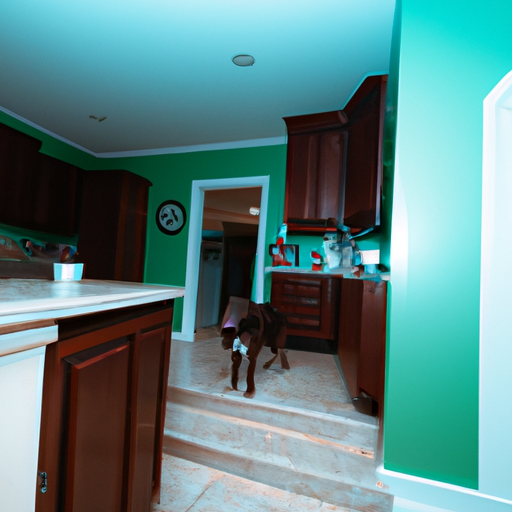Understanding Canine Companionship
As you step into your home, your furry friend is right there, wagging their tail, bright-eyed, and ready to accompany you. You may have wondered, “Why does my dog follow me everywhere?” Do not fret; you are not alone in this curiosity, and there are several reasons behind this canine behavior.
-
Pack Mentality: Dogs are descendants of wolves, and they inherently possess a pack mentality. In a pack, members always stay together, follow the leader, and support each other. You, as their caregiver, are seen by your dog as the pack leader.
-
Companionship: Dogs are social animals. They crave companionship just as humans do, and they find comfort and security in your presence.
-
Curiosity: Your dog might also be following you around out of sheer curiosity. They are intrigued by human activities and want to be a part of everything you do.
The Role of Breed Temperament
Breed temperament plays a significant role in your dog’s clingy behavior. Some breeds are more independent, while others are more inclined to be “velcro dogs.” Here is a table of some typically clingy breeds:
| Breed | Description |
|---|---|
| Labrador Retriever | Known for their loyalty and affectionate nature. |
| Cavalier King Charles Spaniel | They are bred as companion dogs and love to be around their owners. |
| Shetland Sheepdog | They were bred to work closely with their owners and are known for their loyalty. |
The Interplay of Age and Health
Age and health can also influence your dog’s following behavior. Puppies and older dogs tend to follow their caregivers more often due to their dependency. Likewise, a dog who is not feeling well may seek the comfort of their caregiver.
Training and Reinforcement
Often, dogs follow their caregivers due to behavioral conditioning. If your dog receives positive reinforcement—treats, petting, or words of praise—for following you, they will continue this behavior.
When Following Becomes a Problem
While a dog following you around can be endearing, it may also indicate issues like separation anxiety. If your dog exhibits excessive following behavior coupled with distress when you are away, it’s advisable to consult a veterinarian or a professional dog behaviorist.
Frequently Asked Questions
Q: Is it normal for dogs to follow you everywhere?
A: Yes, it’s a common behavior in dogs due to their pack mentality and social nature.
Q: What breeds are more likely to follow their owners?
A: Breeds like Labrador Retrievers, Cavalier King Charles Spaniels, and Shetland Sheepdogs are known for their clingy nature.
Q: When should I be concerned about my dog following me?
A: If your dog shows signs of distress when you are away or if their following behavior disrupts their or your normal routines, it’s time to seek professional help.
Understanding your dog’s behavior can deepen your bond and help you provide better care for your four-legged companion. So, the next time your dog follows you around, remember they do so out of love, loyalty, and a sense of safety they associate with you.



